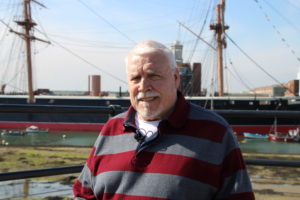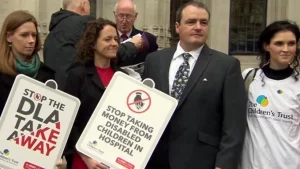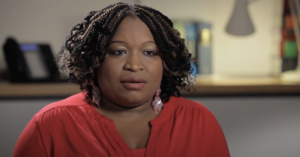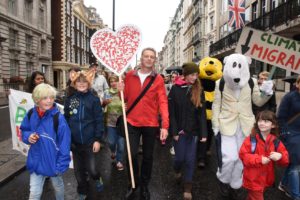Human Rights Act, ECHR and Government accountability
22 years on: six stories that show why we need the Human Rights Act
Posted on 30 Sep 2022
Twenty-two years ago this Sunday, the Human Rights Act came into force. Since then, it has been used to defend the rights of disabled people, LGBTQ+ people, journalists, migrants, survivors of sexual assault, workers, children, grieving families, soldiers, and many more.
Our Human Rights Act protects us all from abuse of power and helps promote a culture of respecting human rights in our public institutions.
Coincidentally, Sunday also marks the opening of the Conservative Party Conference. At last year’s event, the Government committed to ‘overhauling’ the Human Rights Act – a proposal that morphed into its so-called Bill of Rights (also known as the Rights Removal Bill) that would have completely ripped the Act up.
Thanks to the mass movement against it, Liz Truss’s Government has put the Rights Removal Bill on ice – but it’s likely that we will see more attacks on our rights in the months to come.
It’s more important than ever that everyone understands what the Human Rights Act does for each and every one of us. Here are just six stories that show why we must fight to defend it.
Joe Ousalice

In 1993, seven years before the Human Rights Act came into force, Falklands Veteran Joe Ousalice had his medals stripped away by the Ministry of Defence. They were removed after he was forced out of the Navy because of his sexuality.
Losing his medals wasn’t just unfair – it meant he couldn’t claim over 10 years’ worth of pension he had earned through his military service during tours in the Falklands and Northern Ireland.
It was only in 2019, with the help of the Human Rights Act, that the Ministry of Defence admitted that their policy was unjust. Not only did Joe finally get his medals and hard-earned pension back, but the Government also set up a scheme so that other people dismissed in similar circumstances could get theirs back too.
Craig Mathieson


Craig’s son Cameron was diagnosed with cystic fibrosis and Duchenne muscular dystrophy. Eventually Craig had to give up work to take care of him, and after a while had to ask for help and applied for Disability Living Allowance.
Soon after, Cameron needed major surgery and was kept in hospital for 62 weeks. After just 12 weeks, his benefits were stopped. Craig believed it was unfair for anyone in a similar situation to have the help they are entitled to cut off. So, using the Human Rights Act, he challenged the decision.
Cameron passed away in 2012. Craig kept his legal challenge going for every other family whose children faced lengthy hospital stays – and he won. Thanks to the Human Rights Act, Craig changed the law and children’s benefits are no longer stopped no matter how long they are in hospital.
Justice for the 97


Ninety-seven people died as a result of the Hillsborough disaster in 1989, in a crush at a football match between Liverpool and Nottingham Forest. For years, the police and elements of the media blamed Liverpool supporters, and the inquest only found that the deaths were accidental.
The families fought for decades to get the truth, and in 2012, they used the Human Rights Act – which places a duty on the State to investigate unexpected deaths – to successfully argue for a second inquest, after new evidence showed that the first was inadequate.
In 2016, the new inquest found that the fans were not to blame, and the victims had been unlawfully killed. This wouldn’t have happened without the Human Rights Act.
Survivors of sexual assault
The Human Rights Act forces the police to properly investigate crimes against women and girls.
Rapist John Worboys is believed to have attacked more than 100 women. Two survivors reported assaults in 2003 and 2007, but were not believed by the police. In 2018, the two women used the Human Rights Act to hold the police to account for failing to bring Worboys to justice. The Supreme Court made clear that not properly investigating allegations of rape and sexual assault is a violation of survivors’ fundamental human rights.
Modern Slavery


Patience Asuquo was brought to the UK as a domestic worker and nanny. Her ‘employer’ forced her to work for free and physically and mentally abused her for more than two years.
Modern slavery wasn’t a criminal offence at the time, and when Patience eventually escaped, the police didn’t take her seriously. So she used the Human Rights Act, which protects us all against forced labour, to force the police to investigate and prosecute her ‘employer’. Then, in 2015, the Modern Slavery Act became law, to prevent slavery and protect survivors.
Protest


In 2018, wildlife expert and conservationist Chris Packham coordinated the People’s Walk for Wildlife. However, just days before the march, the police told Chris that they wouldn’t close the necessary roads. Instead, Chris would have to pay £40,000 to have the route closed off and made safe for the people and families taking part.
The right to protest is protected by freedom of expression and freedom of assembly. And the Human Rights Act places a duty on police to put measures in place to respect people’s rights – meaning they must actively help protests to go ahead.
When Chris threatened legal action using the Human Rights Act, the police quickly backed down, and the march went ahead as planned.
It’s not only the lives of the families and individuals involved that have been changed for the better by these rulings. Each of them has strengthened protections for all of us, by forcing those in power to respect our rights.
More widely, in introducing a culture of respecting human rights in our public bodies like schools, housing authorities, and health authorities, the Human Rights Act protects millions of people up and down the country in their daily interactions with the state.
It’s vital that we don’t take these protections for granted. In recent years, the Human Rights Act has been under attack from those in power to help them hide from accountability for their actions. They don’t like the Human Rights Act, because it allows us to challenge them when they get it wrong.
The rights and freedoms that the Human Rights Act gave us have been hard fought for. They have defended people from all walks of life for more than 20 years. And we must continue to stand up for them. Whatever form the Rights Removal Bill returns in, we’ll be ready to fight it off again together.
I'm looking for advice on this
Did you know Liberty offers free human rights legal advice?
What are my rights on this?
Find out more about your rights and how the Human Rights Act protects them
Did you find this content useful?
Help us make our content even better by letting us know whether you found this page useful or not
